Search Results
Showing results 121 to 140 of 560
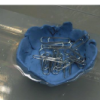
Above Water: Buoyancy & Displacement
Source Institutions
In an investigation called "Shape It!" learners craft tiny boats out of clay, set them afloat on water and then add weight loads to them, in order to explore: how objects stay afloat in water; what th
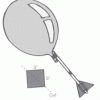
Rippin' Rockets
Source Institutions
In this activity, learners work in pairs to conduct a series of experiments using a balloon, drinking straw, and paper.
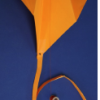
Kites
Source Institutions
In this engineering/design activity, learners make a kite, fly it, and then work to improve the design. Learners explore how their kite design variations affect flight.
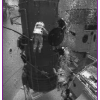
Weighty Questions
Source Institutions
In this activity about humans and space travel (page 1 of PDF), learners compare and contrast the behavior of a water-filled plastic bag, both outside and inside of a container of water.
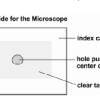
Making Regolith
Source Institutions
This lesson will helps learners answer the question: How does the bombardment of micrometeoroids make regolith on the moon?
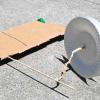
Rubber Band Racer
Source Institutions
In this activity, learners construct speedy vehicles made out of paper plates and powered by twisted rubber bands.
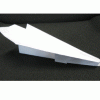
Evolution in Plane Sight
Source Institutions
In this activity, learners model directed evolution by making paper fly. Learners construct and fly paper airplanes.
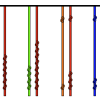
Quipus
Source Institutions
Learners create an Incan counting device called a quipu (pronounced kee-poo).
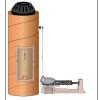
Rocket Wind Tunnel
Source Institutions
In this activity, learners evaluate the potential performance of air rockets placed inside a wind tunnel.
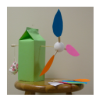
Wind Works!
Source Institutions
Learners will build and experiment with their own windmills made from simple household materials.
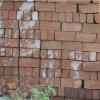
The Squeeze is On
Source Institutions
Each group of learners uses everyday materials, such as paper, toothpicks, and tape to design and construct a structure intended to support the weight of a cinder block for 30 seconds.
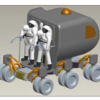
Cooling Off
Source Institutions
In this activity, learners are introduced to challenges of maintaining temperatures while living in space.
No bones about it!
Source Institutions
This is an activity (located on page 3 of the PDF) about the mixture of materials in bone and how they affect its strength.
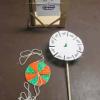
Spinning Illusions
Source Institutions
In this activity, learners construct three optical illusion toys to examine how our brains play tricks on what we see.
Building a Community From the Ground Up
Source Institutions
In this activity, a group of learners work collaboratively to design and construct a paper model showing the evolution of an environment through multiple stages, from prehistory through the modern cit
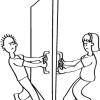
Human Interface Design: The Chocolate Factory
Source Institutions
In this activity about human interface design issues, learners help the Oompa-Loompas of a great chocolate factory solve different problems.
Hazardous Chemicals in Your Neighborhood
Source Institutions
In this environmental science lesson, learners will examine hazardous chemicals and their effects on human health and the environment.
Properties of Metals
Source Institutions
In this activity, learners explore the properties of metals at four stations. The stations include A) Magnetism and Breakfast Cereal; B) Conductivity of Metals; C) Alloys; and D) Metal Plating.

The Carbon Cycle: How It Works
Source Institutions
In this game, learners walk through an imaginary Carbon Cycle and explore the ways in which carbon is stored in reservoirs and the processes that transport the carbon atom from one location to another
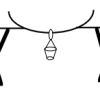
Multi-Variable Relations: Stressed to the Breaking Point
Source Institutions
In this math lesson, learners explore the relationship between the thickness of a spaghetti bridge, the length of the bridge, and the amount of weight that can be supported by the bridge.
